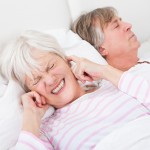
Obstructive sleep apnoea (OSA) is a condition characterised by the presence of repetitive episodes of partial or complete airway obstruction during sleep. Nasal continuous positive airway pressure (CPAP) is considered to be the primary treatment for the condition. However many people cannot tolerate CPAP or only have a mild to moderate where oral a appliances (OA) have been shown to be beneficial.
The aim of this review was to evaluate the effectiveness of oral appliances (OA) in the management of obstructive sleep apnoea.
Methods
Searches were conducted in the PubMed, Web of Science, Embase Cochrane Central Register of Controlled Trials (CENTRAL) and System for Information on Grey Literature in Europe (SIGLE) databases. Randomised and non-randomised controlled trial evaluating the effectiveness of OAS compared with placebo devices or untreated controls were considered. Two reviewers independently selected studies. Two reviewers also undertook data abstraction and assessed study quality using the Cochrane Risk of bias tool.
The primary outcome was the apnoea hypopnoea index (AHI) and secondary outcomes were respiratory arousal index (RAI), minimum oxygen saturation (MinSaO2), rapid eye movement (REM) sleep, sleep efficiency and Epworth Sleepiness Scale (ESS).
Results
- 17 studies were included (16 RCTs; 1 CCT)
- 11 of the studies were cross-over studies.
- The designs of OAs and placebo devices were different among studies.
- Meta-analysis revealed that the pooled mean differences (MD) were:-
| Outcome | No. of studies in meta analysis | Pooled mean difference
(95% CI) |
| Apnea-hypopnea index (AHI): | 13 | -10.26 (-12.59 to -7.93) |
| Respiratory arousal index (RAI): | 9 | -9.03 (-11.89 to -6.17) |
| Minimum oxygen saturation (MinSaO2): | 8 | 3.08% (1.97% to 4.19%) |
| Rapid eye movement (REM) sleep: | 8 | 0.36% (-0.30% to 1.02%) |
| Sleep efficiency: | 7 | 1.34 (- 0.05, to 2.73) |
| Epworth sleepiness scale (ESS): | 12 | -1.76 (-2.57 to -0.94) |
Conclusions
The authors concluded:
The available evidence is indicative of significant benefits in respiration and sleep quality with OAs when compared to placebo devices or blank control, suggesting that OA is effective for patients with OSA, while we cannot determine its effectiveness in sleep efficiency and sleep architecture alteration. Although certain questions remain over the diverse designs of OAs and placebo devices for OSA in adults, the existing evidence supports the employment of oral appliances as a recommendable treatment option for people with mild-to-moderate obstructive sleep apnoea. However, due to the low evidence quality for the outcomes, the results in this meta-analysis should be interpreted with caution.
Comments
This review searched a good selection of databases and only planned to include controlled trials. In view of the number of RCTs identified 16 it was perhaps not necessary to include the one non-randomised study. The Cochrane Collaboration the use of OA for OSA back in 2006 (Lim et al) including 17 studies with a total of 831 patients. At that time they concluded
There is increasing evidence suggesting that OA improves subjective sleepiness and sleep disordered breathing compared with a control. CPAP appears to be more effective in improving sleep disordered breathing than OA.
Interestingly this new review only included 6 of the studies included in the earlier Cochrane review so potentially additional studies could have been included in this new review. A range of OA designs are available so more work is required to determine whether different designs affect the outcomes and also whether these could be any adverse oral effects from their use.
Links
Primary paper
Zhu Y, Long H, Jian F, Lin J, Zhu J, Gao M, Lai W. The effectiveness of oral appliances for obstructive sleep apnea syndrome: A meta-analysis. J Dent. 2015 Oct 17. pii: S0300-5712(15)30054-3. doi: 10.1016/j.jdent.2015.10.008. [Epub ahead of print] Review. PubMed PMID: 26485532.
Other references
Lim J, Lasserson TJ, Fleetham J, Wright JJ. Oral appliances for obstructive sleep apnoea. Cochrane Database of Systematic Reviews 2006, Issue 1. Art. No.: CD004435. DOI: 10.1002/14651858.CD004435.pub3.

Oral Appliances improve obstructive sleep apnoea symptoms https://t.co/XoIVrUyS4K
Oral Appliances in patients with obstructive sleep apnoea https://t.co/XoIVrUyS4K
Obstructive sleep apnoea symptoms improved with oral appliances https://t.co/XoIVrUyS4K
Oral Appliances improved respiration and sleep quality in patients with obstructive sleep apnoea https://t.co/XoIVrUyS4K
Review finds that oral appliances improved obstructive sleep apnoea symptoms https://t.co/XoIVrUyS4K
Oral Appliances improve obstructive sleep apnoea symptoms https://t.co/3hXVerNAVT #dentists
Oral Appliances improve obstructive sleep apnoea symptoms https://t.co/6VQSTzH8VX #dentists
Oral Appliances improve obstructive sleep apnoea symptoms https://t.co/ullRa9DZHN #dentists
Oral Appliances improve obstructive sleep apnoea symptoms https://t.co/V6D2PBFyrz #dentists
Don’t miss – Oral Appliances improve obstructive sleep apnoea symptoms https://t.co/XoIVrUyS4K
Oral Appliances improve obstructive sleep apnoea symptoms https://t.co/OEc8CmIYFi #dentists